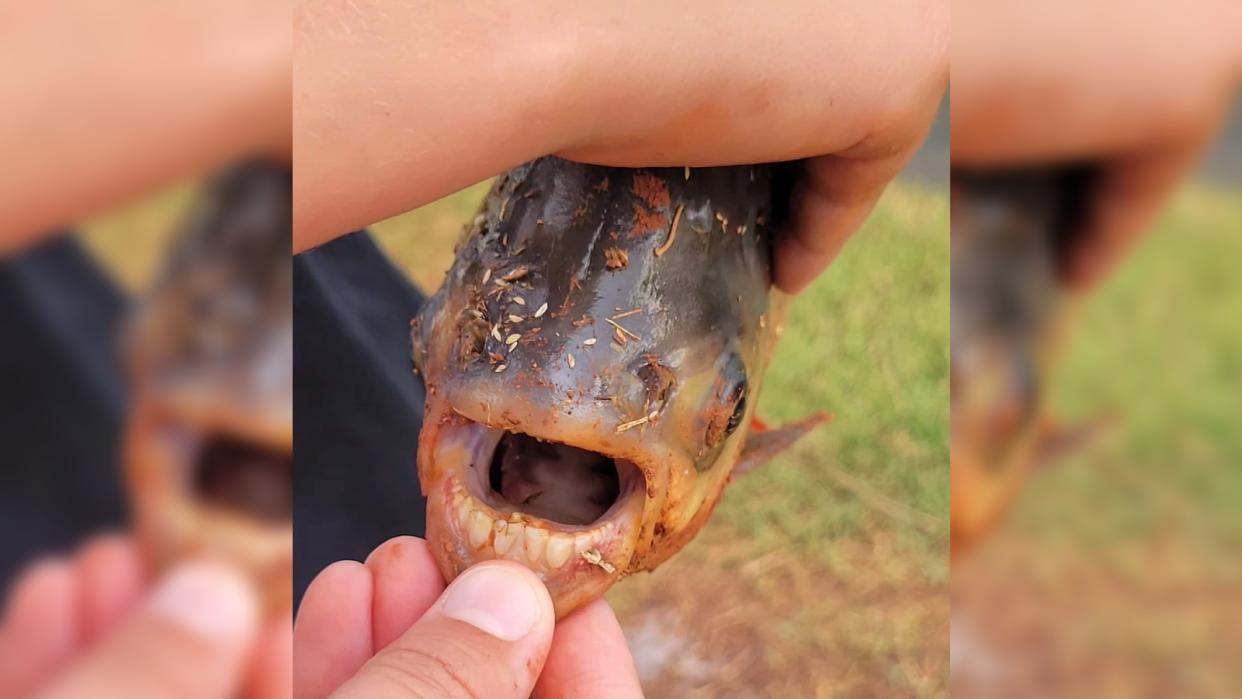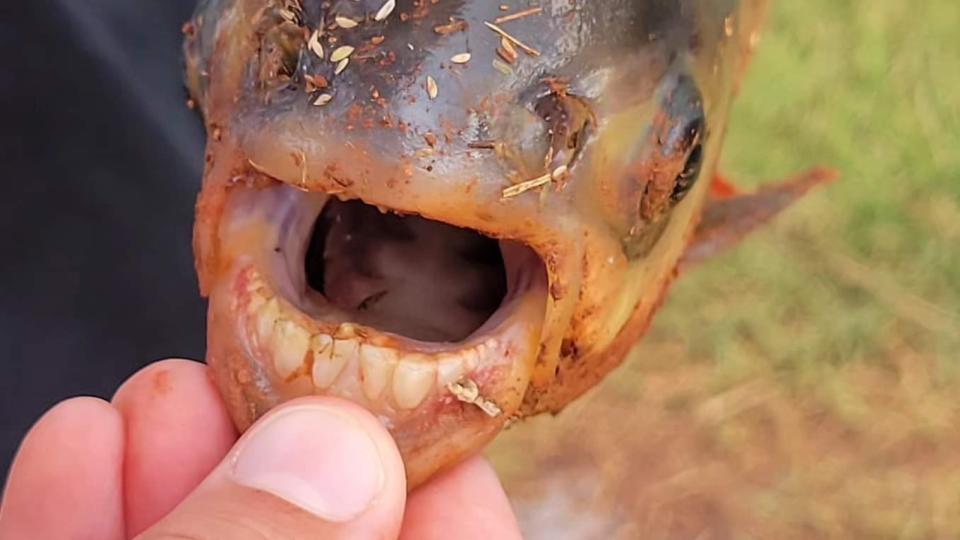Rare piranha-like fish with 'human teeth' caught by young angler in Oklahoma


A young boy in Oklahoma has caught a bizarre, piranha-like fish with eerily human-like teeth hidden behind its fishy lips.
Charlie Clinton caught the exotic fish, known as a pacu, in his "neighborhood pond" on the weekend of July 15, according to a Facebook post from the Oklahoma Department of Wildlife Conservation (ODWC).
Pacu is a name given to several species of fish in the Serrasalmidae family. They are native to South America and are closely related to piranhas, with a similar body shape to their razor-toothed cousins. Pacus enter freshwater ecosystems in the U.S. when people keep them as pets but irresponsibly release them into nearby ponds and rivers when they grow too big for their tanks, ODWC officials wrote.
The exact species of pacu Clinton caught is unknown, but the group is known to grow to around 3.5 feet (1 meter) long and weigh up to 88 pounds (40 kilograms), ODWC officials wrote.
Related: 'Majestic' 3-ton sunfish sets a new world record for largest bony fish ever discovered

Despite looking like piranhas, pacus are harmless to humans. Their flattened, human-like teeth are likely the result of their varied omnivorous diet, which includes small fish, hard-shelled crustaceans and the fruits and nuts of freshwater plants, according to the American Museum of Natural History (AMHN).
Pacu poop also helps to fertilize freshwater plants and disperse their seeds, which makes them a keystone species in their native ecosystems, according to AMNH. However, like most other invasive species, pacus can have a negative impact on ecosystems they are introduced to.
"The practice of dumping unwanted pets in waterways can be incredibly harmful to native wildlife," ODWC representatives wrote in the Facebook post. "They are an exotic, invasive species that can cause damage to our local ecosystems." As a result, anglers are urged to remove them from rivers and ponds where possible, they added.

In 2018, Kennedy Smith, who was 11 at the time, caught a pacu in an Oklahoma lake that weighed around 1 pound (0.5 kg). It bit her grandmother's finger as they tried to remove it from the hook, although the human-like gnashers did little damage, USA Today reported at the time.
related stories
—Bizarre translucent 'Jell-O fish' pulled up from icy depths in Alaska
—Scientists discover beautiful new rainbow-colored fish lurking among 'twilight reefs'
—Unicorn-like blind fish discovered in dark waters deep in Chinese cave
"I was confused because I knew that fish with teeth are not normal," Smith told USA Today. "It was weird. They were human-like and that made it even weirder."
Pacus are not the only fish with human-like teeth that appear in U.S. waters. In 2021, a sheepshead fish (Archosargus probatocephalus) with a much larger set of pearly whites was caught from a pier on the North Carolina coastline.

